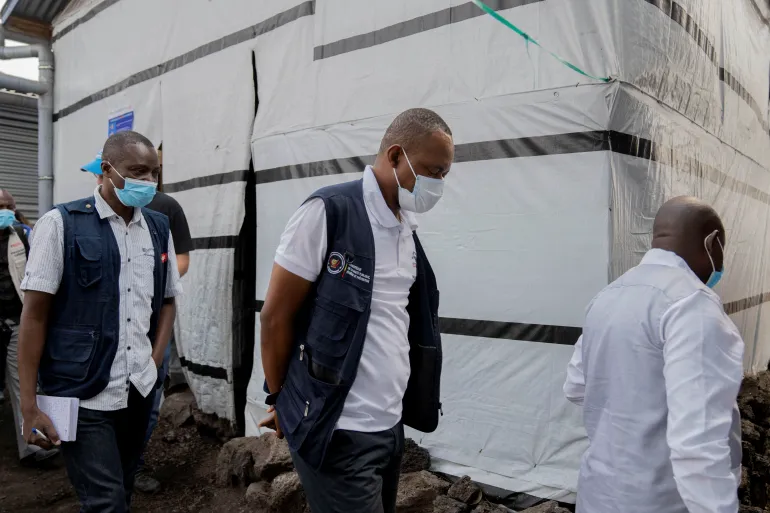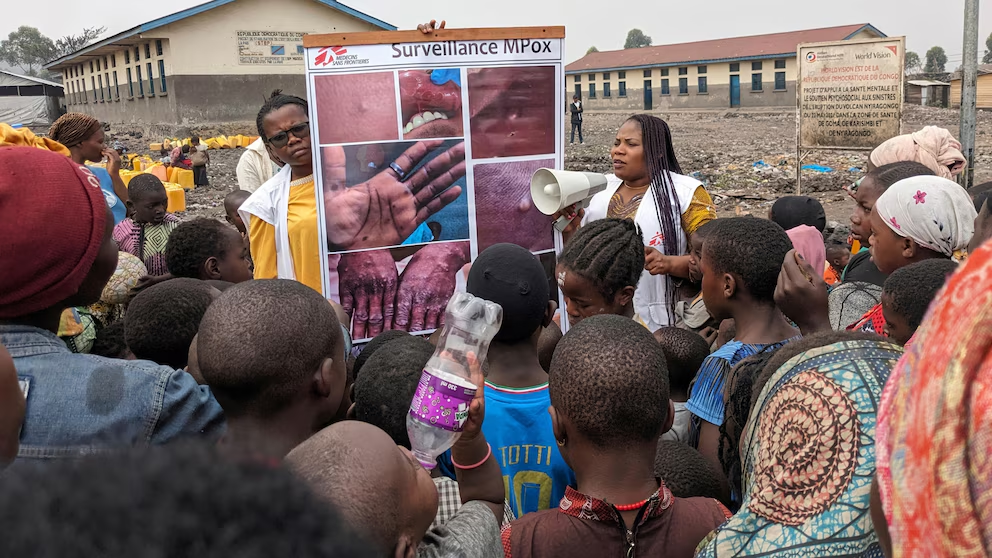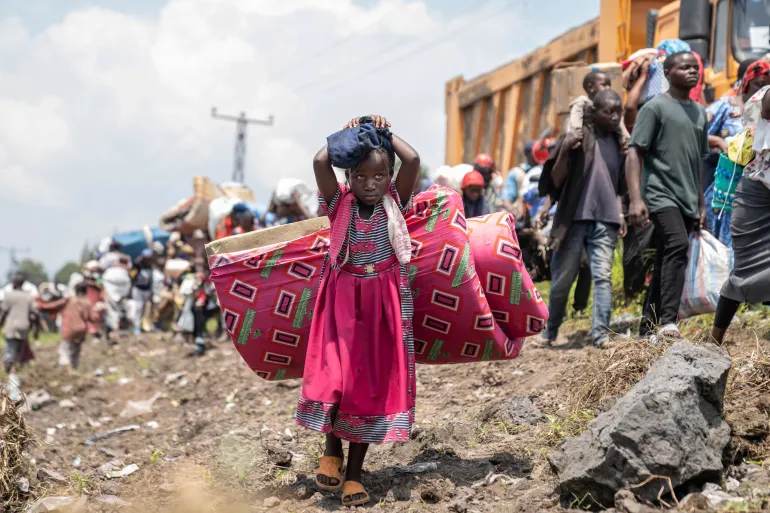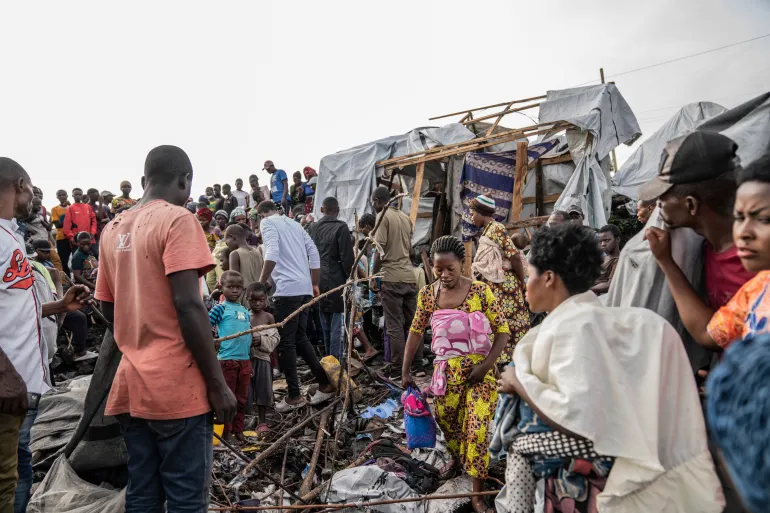
Introduction to the Mpox Outbreak
The world is on high alert as the WHO Chief has declared Mpox a global health emergency. This declaration sends ripples through communities and healthcare systems alike, emphasizing the urgent need to address this escalating outbreak. As we navigate these uncharted waters, understanding Mpox becomes crucial for everyone. With cases rising in various regions and uncertainty looming, individuals must stay informed about what this means for their health and safety. Let’s dive into the essential facts surrounding this pressing issue to equip ourselves with knowledge during these challenging times.
What is Mpox and how is it transmitted?

Mpox, formerly known as monkeypox, is a viral disease that causes symptoms similar to smallpox. The virus belongs to the Orthopoxvirus genus and primarily affects rodents and primates. However, it can infect humans too.
Transmission occurs mainly through direct contact with an infected person’s bodily fluids or lesions. Touching contaminated surfaces or objects also poses a risk. Airborne transmission has been documented but is less common.
The virus can also spread during intimate physical interactions, making awareness crucial in high-risk communities. Understanding these modes of transmission helps individuals take necessary precautions to protect themselves and others from this global health emergency.
Current Situation and Spread of Mpox

The Mpox outbreak has escalated significantly since it was first identified. Cases are now being reported in multiple countries across continents, raising alarms among health officials.
Health authorities are tracking transmission patterns closely. The virus appears to spread through direct contact with infected individuals or contaminated materials. This highlights the need for effective monitoring and response strategies.
In urban areas, clusters of infection have emerged, prompting increased public awareness campaigns. Communities are urged to take preventive measures seriously as the disease spreads rapidly.
Travel restrictions and quarantine protocols have been implemented in several regions to curb further infections. Governments face challenges balancing public health needs with economic impacts.
Essentially, ongoing vigilance is crucial as new cases continue to arise daily. Understanding how Mpox spreads can empower communities to act quickly and responsibly during this global health emergency.
Impact on Global Health and Economy

The Mpox outbreak has substantial implications for global health. It strains healthcare systems already grappling with ongoing challenges from other diseases. Hospitals may find themselves overburdened, which can delay treatment for non-Mpox patients.
Economically, the effects are equally troubling. Countries facing outbreaks might experience reduced productivity as workers take sick leave or quarantine. Travel restrictions and decreased consumer confidence can lead to significant financial losses in tourism and hospitality sectors.
In low-income regions, access to vaccines and treatments becomes a major concern. This disparity may widen existing inequalities in health care, leaving vulnerable populations at greater risk of severe outcomes.
Furthermore, the fear surrounding Mpox could deter individuals from seeking medical assistance for unrelated issues. This potential behavior shift contributes to an overall decline in public health initiatives aimed at preventing various diseases beyond just Mpox itself.
Prevention and Treatment Measures
Preventing Mpox requires a multi-faceted approach. Vaccination is one of the most effective tools available. The vaccine can significantly reduce the risk of infection and severity of symptoms.
Practicing good hygiene is essential. Regular handwashing with soap or using hand sanitizer helps limit transmission. Avoid close contact with infected individuals, as this virus spreads through direct skin-to-skin interactions.
Healthcare providers emphasize early detection and isolation for those who exhibit symptoms. Prompt medical attention can prevent further spread within communities.
For treatment, antiviral medications may be prescribed to manage severe cases or high-risk patients. Supportive care remains crucial in helping individuals recover from the illness effectively.
Public health campaigns also play a critical role in educating communities about safe practices, enhancing overall awareness regarding Mpox risks and prevention strategies.
Addressing Misinformation and Stigma Surrounding Mpox
Misinformation spreads faster than disease, especially during outbreaks like Mpox. It fuels fear and confusion among the public.
Social media is a double-edged sword. While it can disseminate crucial information quickly, it also amplifies false narratives. Recognizing reliable sources versus sensationalized stories is essential for everyone.
Stigma compounds the issue further. Those affected may feel isolated or ashamed, leading to underreporting and reluctance to seek help. It’s vital to foster an environment of understanding rather than judgment.
Education plays a key role in combating both misinformation and stigma. Community outreach programs can help clarify misconceptions about how Mpox is transmitted and treated.
Engaging healthcare professionals in discussions also helps build trust within communities at risk. Open dialogues create supportive spaces where people can share experiences without fear of ridicule or discrimination.
The Importance of Global Cooperation in Combating Mpox
Global cooperation is essential in addressing the Mpox outbreak. As the virus knows no borders, it requires a united front to effectively manage and control its spread. Countries must collaborate on surveillance measures, sharing data about infection rates and transmission patterns.
International health organizations play an integral role in this effort. They provide resources, guidance, and support to nations struggling with outbreaks. By pooling expertise and research findings, countries can develop more effective treatment protocols and vaccination strategies.
Moreover, global solidarity helps combat misinformation that can hinder response efforts. When countries work together transparently, they foster trust among communities worldwide. This trust is crucial for encouraging individuals to seek timely medical help without fear of stigma or discrimination.
Public awareness campaigns should be coordinated at an international level as well. Educating people about Mpox—its symptoms and how it spreads—reduces panic while promoting safety measures.
The fight against Mpox is not just a local issue; it’s a shared challenge that demands collective action from all corners of the globe. Each country has a role to play in safeguarding public health by ensuring access to information, resources, and healthcare services for their populations.
Only through collaboration will we be able to navigate these turbulent waters effectively—a true testament to our commitment toward achieving global health security amidst emerging threats like Mpox. Visit WHO to know more.
Visit QAWire for more health news.


